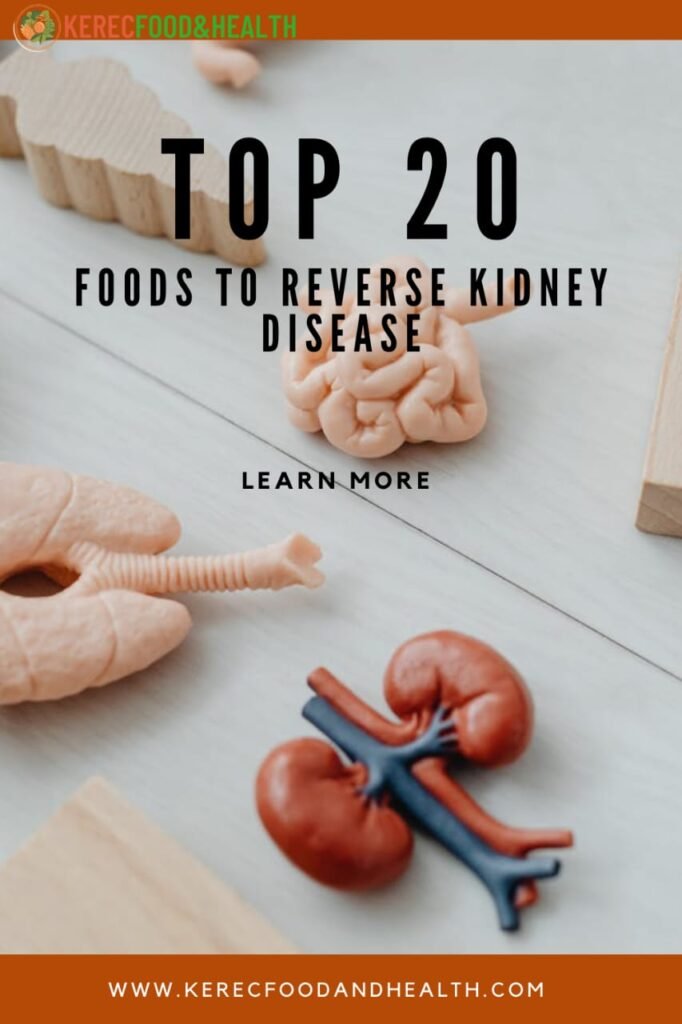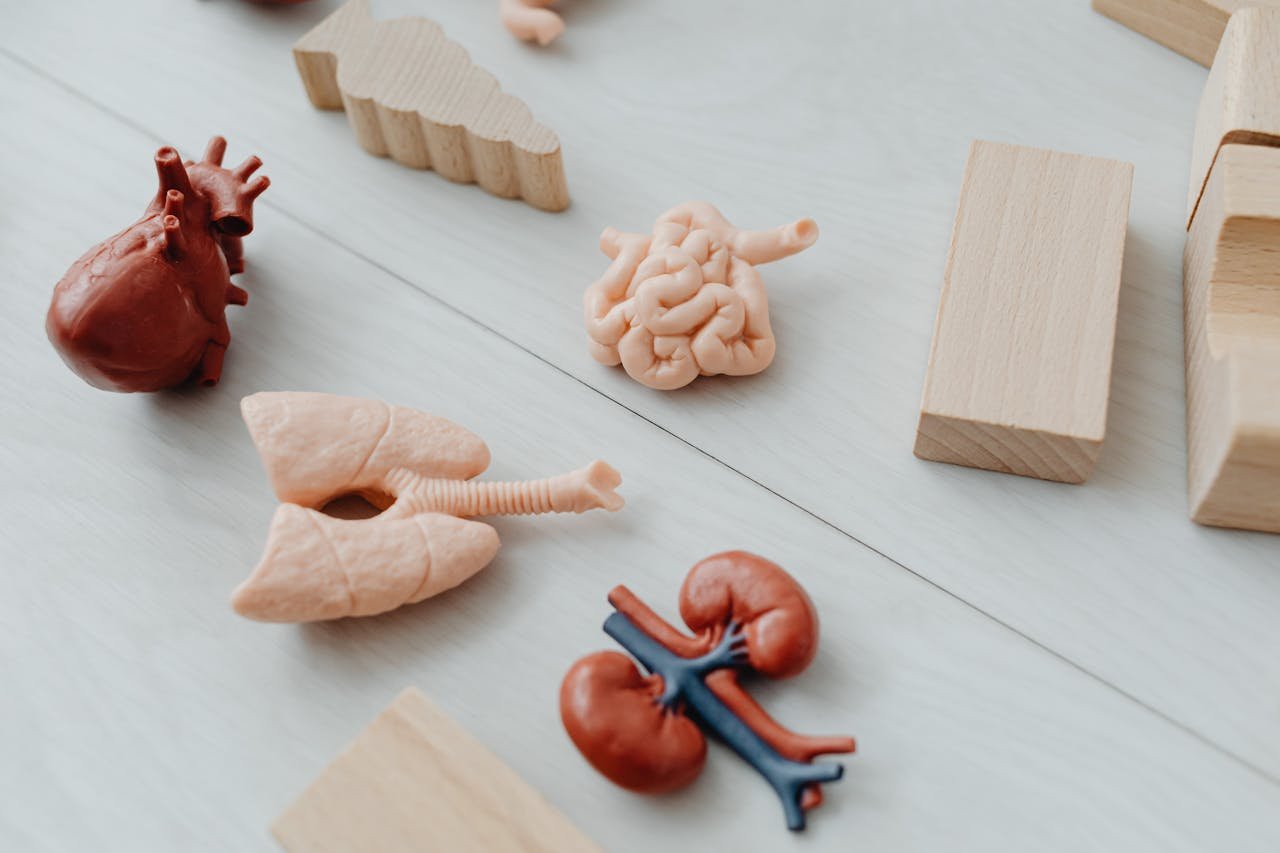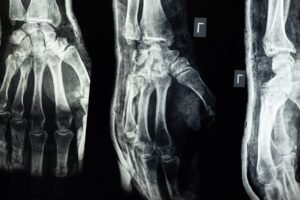Discover the top 20 foods that can help reverse kidney disease, improve kidney function, and promote overall health.
Introduction
Kidney disease is a growing health concern that affects millions of people worldwide. The kidneys play a vital role in filtering waste and toxins from the blood, maintaining fluid balance, and regulating essential minerals. When they become compromised, it can lead to serious health issues. Fortunately, recent studies have shown that certain foods can have a profound impact on kidney health, potentially reversing the effects of kidney disease.
In this blog post, we will explore the top 20 foods that can support kidney function, improve overall health, and offer a pathway to recovery. By incorporating these nutrient-rich options into your diet, you can take a proactive approach to your kidney health and enhance your well-being. Let’s dive into the delicious world of kidney-friendly foods that can make a significant difference in your life!
Kidney Disease
The kidney major function is to get rid of waste products and extra fluid from the body through your urine. The kidneys also help to balance the body’s minerals and fluids and make a hormone that regulates your blood pressure.
A diseased kidney cannot remove waste products from the body as a healthy kidney can. While it is not possible to reverse kidney disease through dietary choices alone, making certain food changes to your diet can help slow down the progression of the disease and improve kidney health.
If you have kidney disease, there are certain foods that you must limit to help prevent further kidney damage such as foods that are high in sodium, potassium, phosphorus, and cholesterol. Having kidney-friendly diet will therefore help protect your kidneys from further damage.

20 Kidney-friendly Food to Reverse Kidney Disease
Here are the top 20 kidney-friendly food choices that can be beneficial for individuals with kidney disease as they can help repair your kidneys and help you to stay healthier longer:
1. Low-sodium Foods
Too much sodium can put a strain on the kidneys. Reducing your sodium intake will help maintain blood pressure and prevents fluid retention. You should opt for low-sodium alternatives and avoid processed foods, packaged foods, canned soups, and fast food, which tend to be high in sodium.
2. Fresh Fruits and Vegetables
These are generally low in sodium and high in vitamins, minerals, and fiber. Choose a variety of colorful fruits and vegetables to ensure a good intake of nutrients. Note the more the color the more the nutrients.
3. Whole Grains
Whole grains like brown rice, quinoa, and whole wheat bread provide more fiber and nutrients compared to refined grains. They also have a lower glycemic index, which can help manage blood sugar levels.
4. Lean Proteins
Include lean protein sources like skinless chicken, fish, and tofu. These options are lower in phosphorus and can help reduce strain on the kidneys.
5. Healthy Fats
Incorporate sources of healthy fats, such as avocados, olive oil, and nuts, into your diet. These fats can help reduce inflammation and promote overall heart health.
Switching to healthy fats can also be beneficial for kidney disease patients, as they are less likely to contribute to inflammation and other kidney-related complications.
6. Berries
Berries like strawberries, cranberries, blueberries, and raspberries are rich in antioxidants and can be included in a kidney-friendly diet.
Berry have low-calorie source, and high in fiber and vitamin C, which has the potential to protect against kidney, cancer and heart disease and also provides brain health benefits. Berries are lower in potassium compared to other fruits like bananas which have high potassium content.
Cranberries can protect against bladder infections by preventing bacteria from sticking to the bladder wall. They can improve healthy gut bacteria, promotes GI health and protect the stomach from ulcer-causing bacteria. Cranberries have also help to lower high blood pressure and protects against cancer and heart disease.
Blueberries are high in antioxidant called anthocyanidins, which is responsible for their blue color, and can help reduce inflammation. They are a good source of vitamin C, manganese and fiber.
Raspberries contain a phytonutrient called ellagic acid which helps to neutralize free radicals in the body, which prevents cell damage. They contains a flavonoid called anthocyanins, which is responsible for their red color. Raspberries is a rich source of manganese, vitamin C, fiber, folate, and B vitamin, which has the potential to improve kidney health and inhibits cancer cell growth and tumor formation.
Strawberries are rich source of anthocyanins and ellagitannins phenols. Anthocyanins is responsible for the red color in strawberries, which can help protect body cell structures from free radicals and prevent oxidative damage. Strawberries are excellent source of fiber, vitamin C and manganese, that may provide heart protection, and also have anti-cancer and anti-inflammatory properties.
7. Herbal Teas
Certain herbal teas like nettle leaf tea, green tea and dandelion root tea have been traditionally used to support kidney function. Consult with a healthcare professional before adding herbal teas to your diet.
8. High-fiber Foods
Maintaining a high-fiber diet can help lower cholesterol levels and reduce the risk of heart disease, which is a common complication of kidney disease. Whole grains, fruits, vegetables, and legumes are good sources of fiber.
9. Low-potassium Foods
If your kidneys are not able to remove excess potassium from your blood, it is important to limit high-potassium foods. As foods high in potassium, can stress the kidneys and may even cause further renal damage.
Examples of certain fruits that are high in potassium and should be avoided by patients with renal disease, includes bananas, prune, oranges, avocados, tomatoes, citrus fruits, apricots, beans, dates, raisins, and potatoes.
10. Low-phosphorus Foods
People with kidney disease often have weakened kidneys that cannot effectively remove phosphorus. Foods to that have high levels of phosphorus can stress the kidneys and may cause further renal damage. They can also lead to bone and heart problems. Foods low in phosphorus include rice, cabbage, apples, and green beans.
11. Low-protein Foods
Consuming too much protein can put a strain on the kidneys. Consult with a dietitian or healthcare provider to determine the appropriate amount of protein for your specific needs.
12. Apples
Apples may help to lower your cholesterol level, prevent constipation, protects against heart disease and reduce your risk of cancer. The rich source of pectin fiber, vitamin C, antioxidant and anti-inflammatory compounds makes them to be beneficial for people with kidney disease.
13. Fatty Fish
Fishes can provide you with high-quality protein and anti-inflammatory fats called “omega-3s. Fatty fish such as salmon, mackerel, tuna, herring, and sardines are rich source of omega-3 fatty acids.
Omega-3 fatty acids is an essential nutrient that can control blood clotting and build cell membranes in the brain. Omega-3 fatty acids may reduce the risk of an abnormal heartbeat, decrease triglyceride levels, lower blood pressure, fight diseases such as heart disease and cancer, which is beneficial for kidney health.
The healthy fats in fatty fish can also lower low-density lipoprotein or LDL cholesterol, which is bad cholesterol, and raise high-density lipoprotein or HDL cholesterol, which is good cholesterol.
14. Cruciferous Vegetables
Cruciferous veggies like spinach, cabbage, cauliflower, lettuce, and kale are super rich source of fiber, vitamins A, K, C, B6, folate, calcium, magnesium, and other minerals. They have low levels of potassium, which makes a great addition to the dialysis and kidney diet.
Cruciferous veggies are also an excellent source of carotenoids, beta-carotene, and flavonoids, which are beneficial for your eye health and cancer protection. They also help to boost your immunity and protect your vision.
Cruciferous veggies, such as cabbage is packed full of phytochemicals that can break up free radicals before they can do damage. Thereby protecting cells from damage that could lead to cancer, and cardiovascular health.
Cauliflower is a rich source of indoles, glucosinolates and thiocyanates compounds that can help the liver to neutralize toxic substances that could damage cell membranes and DNA.
Kale must be avoided by people who have kidney disease or are undergoing dialysis, because they contain moderate levels of potassium.
15. Red Bell Peppers
Red bell peppers are low in potassium and high in fiber, making them a perfect food choose for kidney diet.
These tasty vegetables are also rich source of vitamins A, C, B6, B9, K, folic acid, and lycopene antioxidant that can help protects against high blood pressure, cardiovascular diseases and certain types of cancers disease, which in turn are beneficial for kidney health.
16. Garlic and Onions
Garlic and onions belong to the Allium family and a major flavoring spice in many cooked dishes. They also contain sulfur compounds which give it its pungent smell, in making some people cry.
They have antimicrobial properties that can help lower cholesterol, high blood pressure and reduces inflammation.
Garlic and onions are rich source of a powerful antioxidant called flavonoids, especially quercetin, that may reduce heart disease and protect against many cancers.
Garlic and onions have low levels of potassium and a rich source of chromium mineral, that helps with carbohydrate, fat and protein metabolism.
17. Extra Virgin Olive Oil
Extra virgin olive oil is a great source of monounsaturated fat called oleic acid, which is an anti-inflammatory fatty acid can help protect against oxidation.
This oil contains polyphenols and antioxidant compounds that can also prevent against inflammation and oxidation. They can help to lower rates of heart disease and cancer.
18. Egg Whites
Egg whites are super rich source of high-quality protein with all the essential amino acids.
For the kidney health, egg whites provide quality protein with less phosphorus than other protein sources like meats.
Egg white is a better choice than whole eggs for people on a renal diet, as egg yolks can contain high levels of phosphorus.
19. Radish
Radish is a crunchy vegetable that make a perfect choice for people on renal diet. They contain very low levels of sodium, potassium and phosphorus, while they are also rich source of folate, vitamin A and other important nutrients.
20. Arugula
Arugula is a nutrient-dense leafy green that is very low in potassium, sodium, and phosphorus, making it a perfect choice for kidney-friendly salads and side dishes.
Arugulas is also an excellent source of vitamin A, B9, C, K, iron, manganese, and calcium, all of which are important for your bone health and cardiovascular health.
The nitrates in arugula leafy greens can lower blood pressure, which is an important benefit for those with kidney disease.
Arugula contains an antioxidant called has glucosinolates, which can help the protect body against certain types of cancer.
Bottom Line
It is important to note that dietary recommendations can vary depending on the individuals’ specific needs and the stage of kidney disease.
It’s best to consult a registered dietitian or a healthcare professional who can provide personalized advice based on your specific needs and medical history. They can also provide further guidance on portion sizes, fluid restrictions, and other dietary considerations.
Reference
- Anita Dhanorkar, Sruthi M, and Pallavi Suyog Uttekar. 12 May (2022). What Foods Help Repair Kidneys? https://www.medicinenet.com/what_foods_help_repair_kidneys/article.htm.
- Sara Colman. Top 15 Healthy Foods for People with Kidney Disease. https://www.davita.com/diet-nutrition/articles/advice/top-15-healthy-foods-for-people-with-kidney-disease.
- Jerlyn Jones and Jillian Kubala. May 26, (2023). The 20 Best Foods for People with Kidney Disease. https://www.healthline.com/nutrition/best-foods-for-kidneys.
- Colleen de Bellefonds and Igor Kagan. March 21, (2023). 8 Diet Tips to Help Prevent or Manage Chronic Kidney Disease. https://www.everydayhealth.com/kidney-diseases/diet-tips-to-help-prevent-or-manage-chronic-kidney-disease/.
- Kacie Goff. Sept. 10, (2023). 13 Nutrient-Packed Foods for Optimal Kidney Health. https://www.cnet.com/health/nutrition/13-nutrient-packed-foods-for-optimal-kidney-health/.





